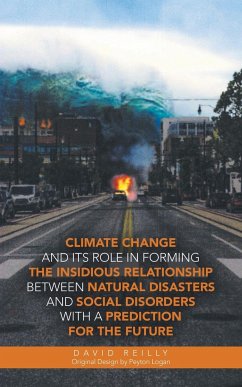
Climate Change and Its Role in Forming the Insidious Relationship Between Natural Disasters and Social Disorders with a Prediction for the Future

PAYBACK Punkte
6 °P sammeln!
This book explores the relationship between the increased frequency, types, and severity of natural disasters and the significant increase in the number of social and violent disorders. With natural disasters come feelings of a lack of control over one's life and a fear of being helpless. Many times, people worry about providing for their families. While it is clear that there is a correlational relationship, we can't predict the type of social disorders that will result from natural disasters. To make headway, we must move from a linear perspective to a nonlinear one, focusing on system inter...
This book explores the relationship between the increased frequency, types, and severity of natural disasters and the significant increase in the number of social and violent disorders. With natural disasters come feelings of a lack of control over one's life and a fear of being helpless. Many times, people worry about providing for their families. While it is clear that there is a correlational relationship, we can't predict the type of social disorders that will result from natural disasters. To make headway, we must move from a linear perspective to a nonlinear one, focusing on system interactions instead of individual disasters. To achieve this goal, we must develop a far broader perspective about what needs to be accomplished than the limited one we have now-one that acknowledges the need to remove legislative bodies from the equation. Consider bold proposals to change the way we think, bolster our infrastructure, and curb the problems that plague us with the insights in Climate Change Natural Disasters, and Social Disorder.













